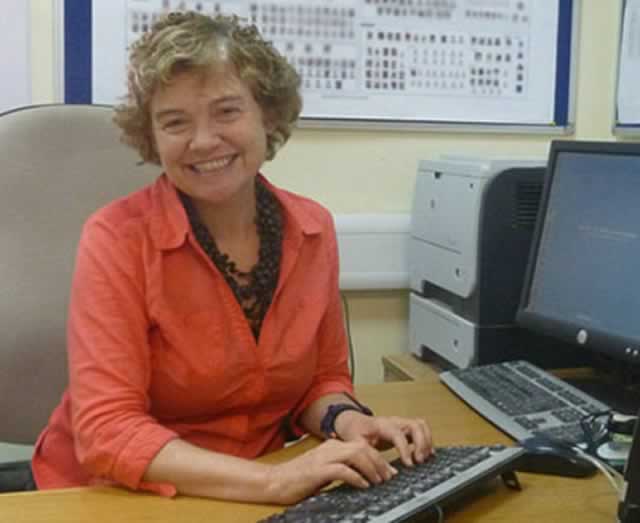Ms Laing, we presume?

Joram Nyathi Group Political Editor
I WANT to believe I fully grasp Catriona Laing’s mission in Zimbabwe. The new lady from the United Kingdom wants to “normalise relations” between her country and its former colony of Zimbabwe. She also views President Mugabe as an “iconic figure”.
Ms Laing must prepare herself for a spectacular failure. Her success or failure will depend as much on her instructions from home as on the company she keeps while she remains a guest of the Zimbabwe Government. She will need to be a faster learner, more diplomatic and less supercilious.
To make sense of this cautionary, I need to make a small detour.
Renamo and others
Mozambique held its national elections last week on Wednesday, October 15, 2014. In the run up to election day, there were subtle, some not so subtle, accusatory messages thrown in the media: locally-based Mozambicans would be allowed to vote. The point being, Zimbabwe should copy that example. That qualifies the election as democratic, free and fair!
On the day of the election, leader of the main opposition party, Renamo, Afonso Dhlakama, declared as he cast his vote; “For the first time, these elections are free and fair. All the previous ones were fraudulent.”
When the results were announced two days showing the ruling Frelimo party winning, Renamo’s reaction didn’t disappoint. “We don’t accept the results …” declared its spokesperson, Antonio Muchanga. “ . . . the results should be annulled and new elections held.”
Most Zimbabweans, even against their best wishes, must have felt a sense of de’ja vu. Almost word for word. Zimbabwe’s main opposition described last year’s electoral result as “null and void”, a “monumental fraud”. That was after its leader declared they were winning.
Dhlakama of Renamo lost to Frelimo’s candidate, Filipe Nyusi.
This is the guy who has fought the Frelimo government since 1975, destroying the country’s infrastructure and retarding development in much of the northern districts of the country. In the latest electoral contest, he only emerged from his bush hideout last month, and without even a programme, hoped to charm his way into power by virtue of opposing a winning, long ruling Frelimo. And Dhlakama and his Renamo have maintained the mission of their foreign founders and sponsors, former apartheid South Africa and the United States: to destabilise their country.
But despite claims of electoral irregularities, Dhlakama’s initial observation prevailed. Sadc’s observer mission pronounced the election “generally peaceful, transparent, free, fair and credible”. The African Union came to a similar verdict, endorsing the election as “largely peaceful and free from intimidation”.
Renamo’s protests against the electoral outcome are an old script we have listened to here, several times since 2000. It is the same script handed to the opposition as far on the continent as Kenya whose electorate was given an ominous warning by America ahead of the March ballot that voting for Uhuru Kenyatta had “consequences”. Across on the Atlantic coastline in Angola, Dhlakama had a counterpart, Jonas Savimbi leading a bandit movement better known by the acronym UNITA.
Unita was just as evil as Renamo, its scale of atrocities against civilians despicable. Until its sponsor, the United States, felt that Savimbi was no longer of use, Unita behaved like a rabid dog as its leader sought power by any means at his disposal. Until America said he must go. Does it always have to end this way?
African Union Commission chair Dr Nkosazana Dlamini Zuma was excited about the conduct of the elections in Mozambique and Sao Tome and Principe, noting that voting on the continent was slowly getting more regular, peaceful, orderly and less conflict-ridden. She prayed for similar processes in Botswana, the Comoros, Tunisia and Namibia, all of which face elections before the end of the year.
No doubt Ms Laing would be aware of what most of these countries, particularly Mozambique, Angola, Kenya and Zimbabwe, went through to attain political independence. That they were not beneficiaries of munificent United Nations declarations on the freedom of all peoples and equality of all nations. That they all had to fight bitter and costly liberation wars to be free.
But even after defeat, the former colonisers would not let go of the colony, hence Ms Laing’s almost nostalgic reference in her “normalising of relations” with Zimbabwe to “that shared history, that shared culture, shared education system” which “provides for us a good foundation for partnership going forward”.
There were no “shared” virtues Ms Laing. We were colonised and the master’s culture imposed on us. That is why most liberation movements in the region still have a bitter cultural war to be fought. The US and the United Kingdom, particularly through its patronising Commonwealth, have fought valiantly to maintain an exploitative relationship while outwardly giving the illusion of “equals”.
Former colonial powers have always wanted to ensure the former colonies remain important outposts for markets and natural resources. Unfortunately, where this subaltern relationship has been resisted, the scheming former colonisers have either deposed the recalcitrant leader directly or sponsored parties to fight their proxy war.
In crude summary, Ms Laing should appreciate that this is the main source of the “fight” or strained relations between Zimbabwe and the United Kingdom. It is an area which should be handled with delicate sensitivity.
Now, let’s go step by step with our newly-installed guest. She says of President Mugabe; “Obviously, he is a very iconic figure. He is one of the few presidents in an African country whose name will be known in our country and in most countries, maybe because he has been in power for a long time.”
Reading through the interview with The Herald, her jarring syntax suggests someone to whom English is a second language. She may not get the nuances, although those of a less charitable disposition would interpret her expression as arrogant or patronising.
Africa is a continent of 54 independent states, all members of the United Nations and with embassies in Europe, including the UK. Ms Laing tells us Mugabe is one of a few such presidents “whose name will be known in our country”. The rest are too insignificant to be known.
But even Mugabe is not known because of his “iconic” status, according to Ms Laing. It is by default. He is known “maybe because he has been in power for a long time”!
I said earlier that Ms Laing would need to mind the company she keeps and learn fast.
Keeping to her perceived task in the country, she pointed out in the interview; “It’s in both our (Britain and Zimbabwe’s) interests to have a normal relationship. But the basis for that relationship has to be such principles that we are strongly committed to adhere to around governance, democracy and human rights. We are not shying away from that and there are still some hurdles along the way.”
I insist that Ms Laing needs to mind the company she keeps otherwise she will leave Zimbabwe a very frustrated woman if she believes that at the core of the dispute between Zimbabwe and Britain are human rights, democracy and governance issues.
At the core of the dispute, Ms Laing, is the content of our democracy, human rights and governance. Zimbabwe has gone beyond formal independence to a fight for substance. It is the fight for land rights which has made Mugabe an “iconic figure” among the few African leaders so fortunate to be known in her country, not the length of his stay in power. He is one of a few African leaders who have fought to change the rules of engagement with Europe, and to challenge the exploitative “principles” of horse and rider which the UK wants to perpetuate in Zimbabwe. Mind your language, mind the birds around you.







Comments